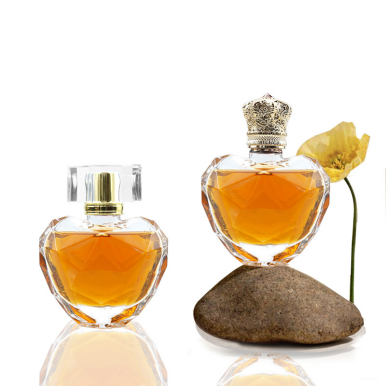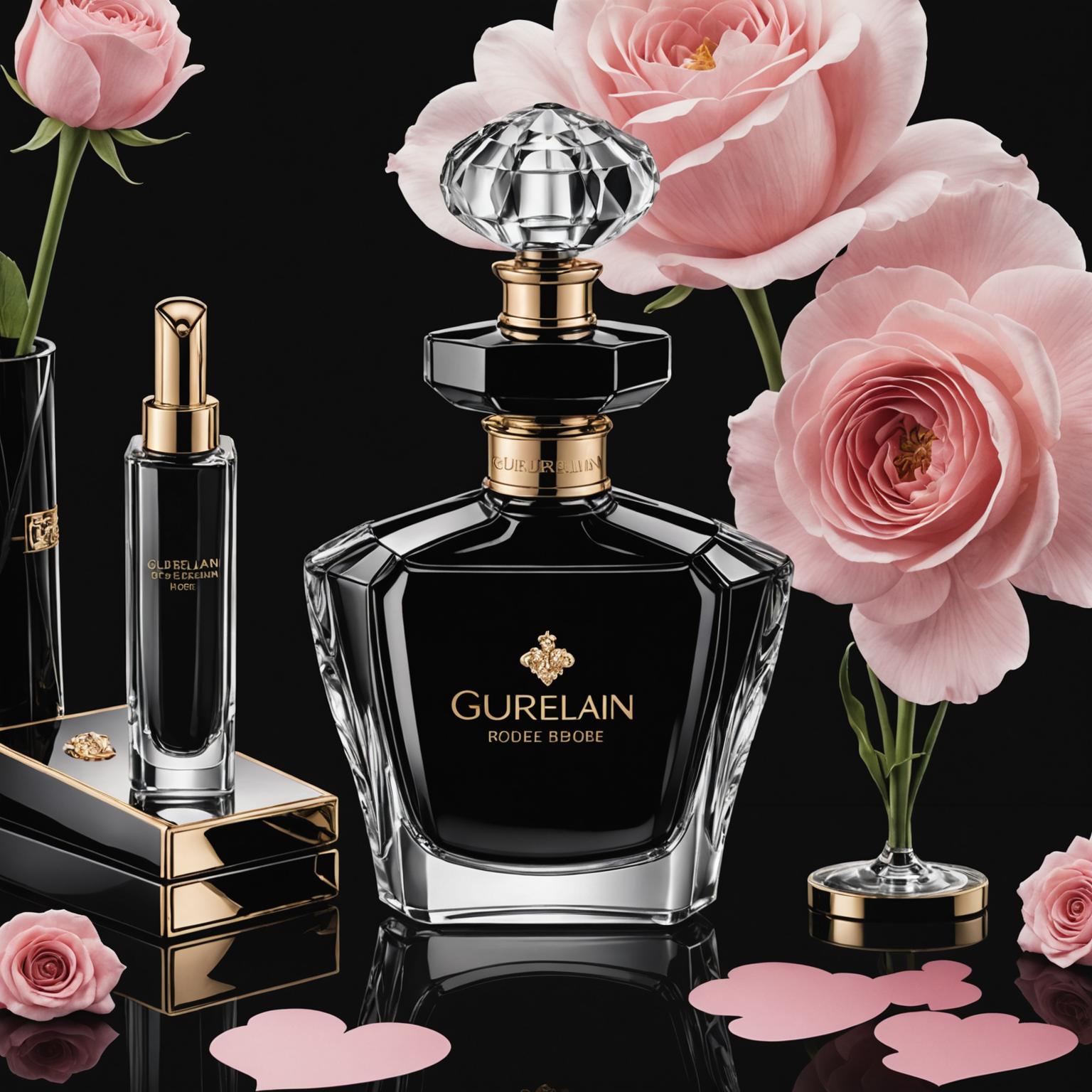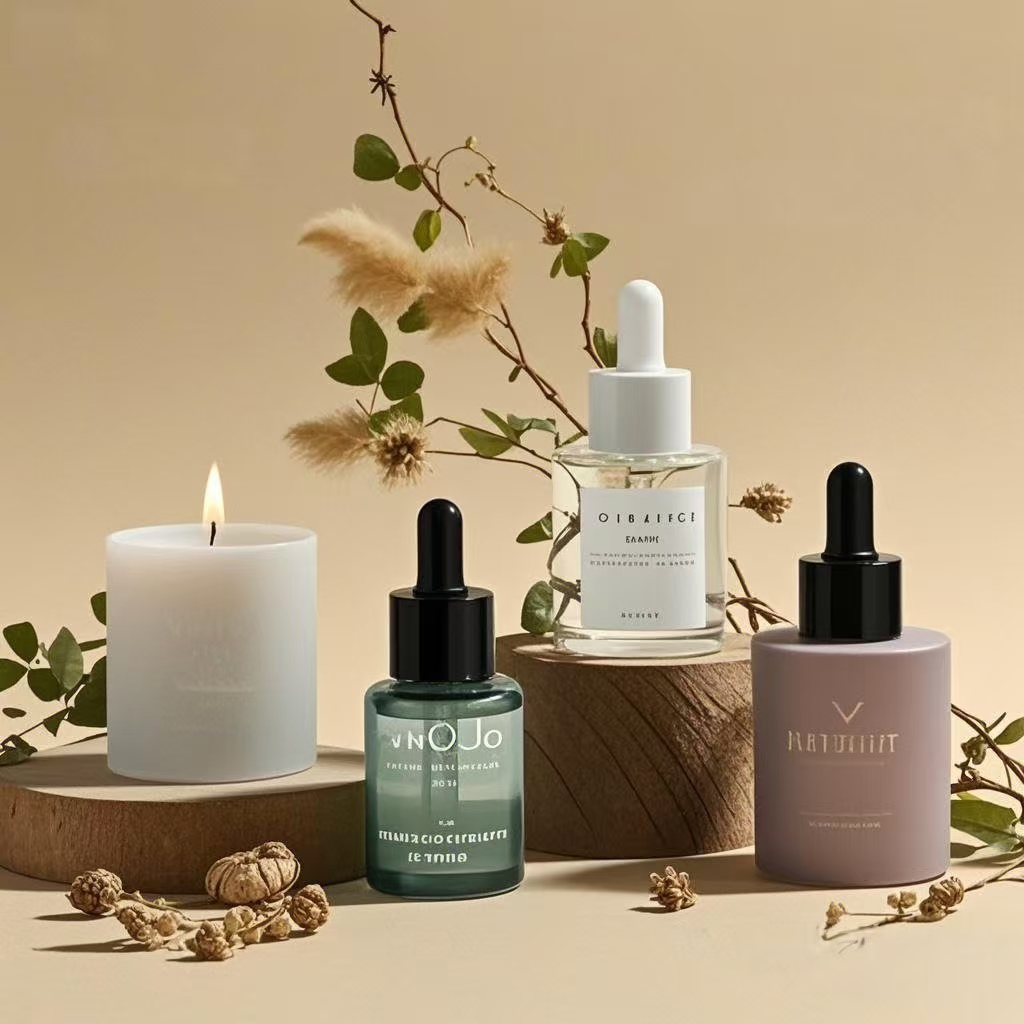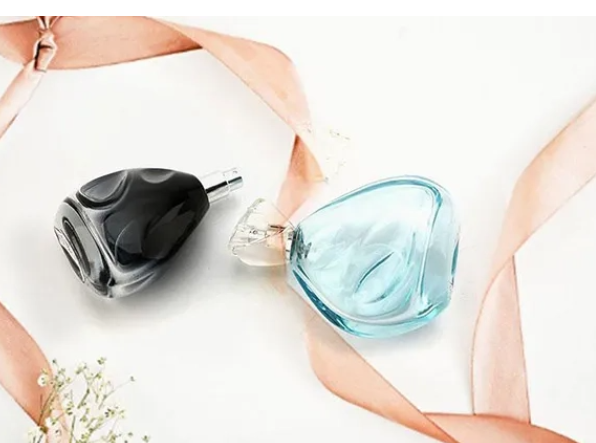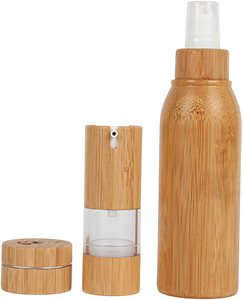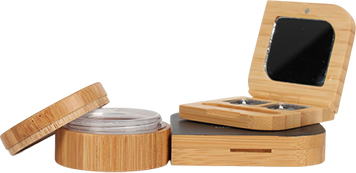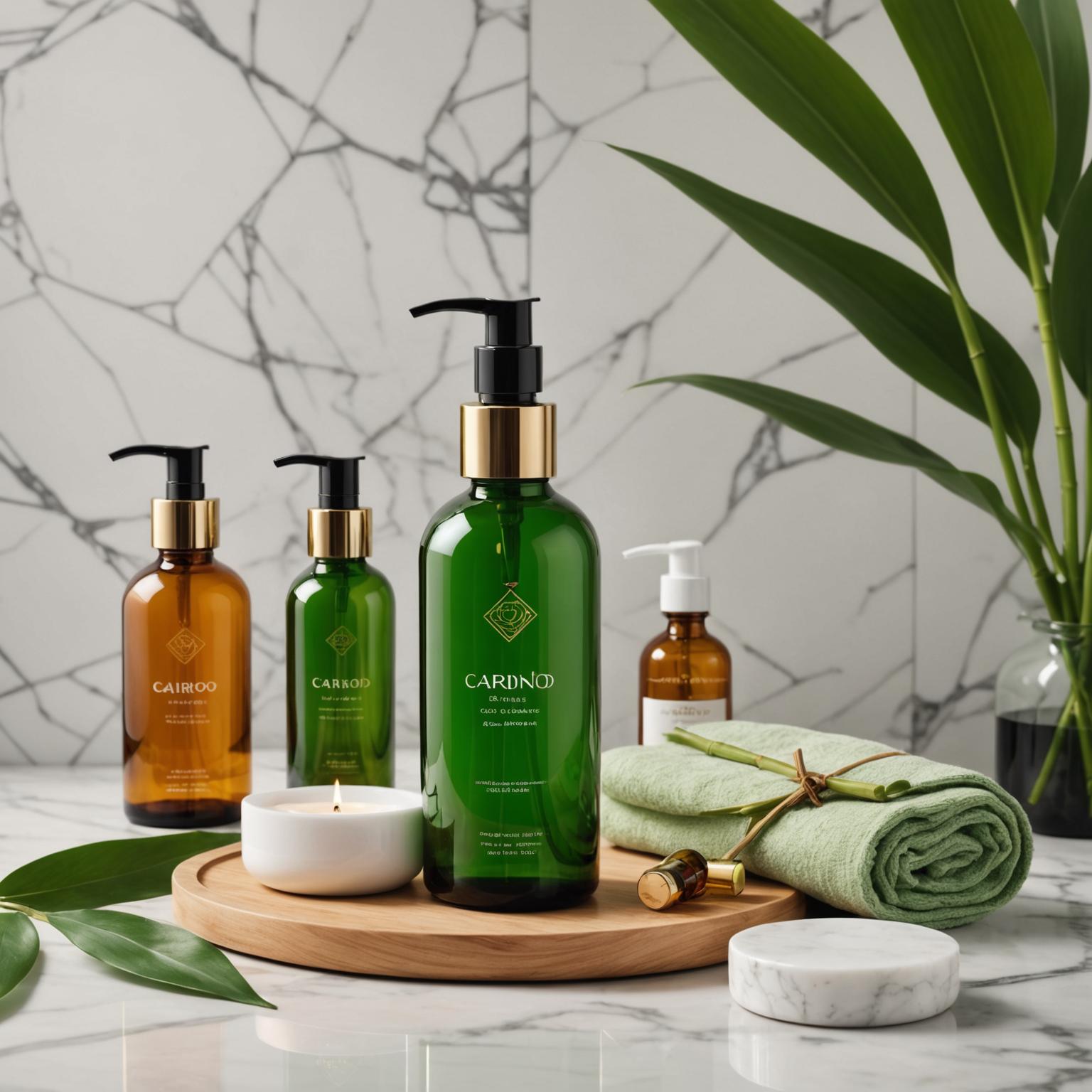The global essential oil market is not just growing—it’s evolving. Today’s consumers don’t just buy oils for their therapeutic benefits; they seek brands that deliver a cohesive, premium experience—starting with packaging. Roll-on bottles have emerged as a fan favorite: their portable design makes them perfect for on-the-go use (think purses, gym bags, or travel kits), while the controlled rollerball mechanism prevents waste and ensures precise application. In fact, a 2024 industry report found that roll-on essential oil packaging drives 35% higher repeat purchases than traditional dropper bottles, thanks to their user-friendly design.
But here’s the catch: the success of your roll-on packaging hinges on two critical decisions: choosing the right roll-on bottle supplier and getting your essential oil bottle bulk order strategy right—especially if you want to add unique touches with customized essential oil glass bottles. A subpar supplier might deliver roll-ons with leaky mechanisms or low-quality glass that degrades your oils; a poorly planned bulk order could tie up your budget in excess inventory or leave you short during peak demand; and generic packaging will make your brand blend into a sea of competitors.
This guide is built for essential oil brands at every stage. We’ll walk you through how to vet suppliers to avoid costly mistakes, optimize bulk orders for cost and efficiency, and use customized glass bottles to turn packaging into a brand-building tool. By the end, you’ll have a clear roadmap to source roll-on bottles that protect your products, delight your customers, and drive your business forward.
Why Roll-On Glass Bottles Are a Game-Changer for Essential Oil Brands (And What Suppliers Must Get Right)
Before diving into supplier selection, let’s unpack why roll-on glass bottles are worth investing in—and the non-negotiable quality standards your supplier must meet. Unlike plastic roll-ons, glass is inert: it won’t react with essential oils’ volatile compounds or leach chemicals, ensuring your products stay pure and safe. Glass is also recyclable, aligning with the 72% of essential oil consumers who prioritize sustainable packaging (per a 2023 Consumer Insights survey).
But the “roll-on” component is just as critical as the glass. A high-quality roll-on mechanism should deliver three key benefits:
-
Smooth application: The rollerball (typically made of stainless steel or glass) should glide easily across skin without skipping or dragging—this enhances the user experience and ensures even oil distribution.
-
Leak-proof design: Nothing damages a brand’s reputation faster than a leaky roll-on. The mechanism must seal tightly to prevent oil from seeping out during shipping or storage, which also preserves the oil’s potency by blocking oxygen.
-
Controlled dosage: Consumers hate waste—your roll-on should dispense just the right amount of oil (usually 0.05–0.1ml per roll) to avoid overuse.
A reliable roll-on bottle supplier will prioritize these details. Here’s what to verify about their products:
-
Glass quality: The bottle should be thick, durable (to avoid breakage in bulk shipping), and made of food-grade, lead-free glass. For light-sensitive oils (like lavender or tea tree), ask about amber or cobalt blue glass options—these filter UV rays to extend shelf life.
-
Rollerball material: Stainless steel is the gold standard—it’s rust-resistant, hypoallergenic, and won’t interact with oils. Avoid suppliers using plastic rollerballs, which can degrade over time.
-
Seal integrity: Request samples and test them: fill the bottle with water, attach the roll-on mechanism, shake vigorously, and invert it for 24 hours. If it leaks, the supplier’s quality control is lacking.
In short, your roll-on bottles are a direct reflection of your brand’s quality. A supplier that cuts corners on glass or mechanism design will harm your reputation—so never compromise here.
5 Critical Criteria to Choose the Best Roll-On Bottle Supplier
Not all roll-on bottle suppliers are equipped to handle essential oil bottle bulk orders or customized essential oil glass bottles. To narrow down your options, evaluate every potential supplier against these five non-negotiable criteria.
1. Bulk Production Capabilities: Scalability, Consistency, and Cost
Bulk ordering is the key to keeping per-unit costs low—but only if the supplier can deliver consistent quality at scale. Here’s what to dig into:
-
Minimum Order Quantities (MOQs): Most suppliers set MOQs for roll-on bottles, ranging from 1,000 to 50,000 units. Match the MOQ to your needs: startups may need a supplier with 500–1,000 unit MOQs to test the market, while established brands might require 100,000+ units per run. Avoid suppliers with rigid MOQs that force you to overorder (tying up cash in inventory).
-
Production Capacity: Ask about the supplier’s daily output. A supplier with 10 assembly lines can fulfill a 50,000-unit bulk order in 1–2 weeks, while a small operation might take a month—critical if you’re gearing up for a product launch or holiday season.
-
Bulk Quality Control: In bulk orders, even a 1% defect rate means 500 faulty bottles. Look for suppliers with automated quality checks: machines that inspect for cracked glass, misaligned rollerballs, or faulty seals. Ask to see their QC process documentation—reputable suppliers will share this openly.
-
Tiered Pricing: The best suppliers offer volume-based discounts. For example, you might pay $1.20 per bottle for 1,000 units, $0.90 for 10,000 units, and $0.75 for 50,000 units. Get a detailed quote that includes all costs (glass, rollerball, assembly, shipping) to avoid hidden fees later.
2. Customization Expertise: Turn Glass Bottles Into Brand Assets
Customized essential oil glass bottles are your chance to stand out on e-commerce shelves or in retail stores. A supplier with strong customization skills will turn your brand vision into reality—here’s what to look for:
-
Glass Customization: Beyond standard sizes (10ml, 15ml, 30ml), ask if the supplier offers custom shapes (e.g., curved edges, hexagonal bodies) or embossing (e.g., your logo pressed into the glass). Note that custom molds have upfront costs, but they create a unique look that’s hard for competitors to copy.
-
Labeling and Printing: Labels are the most accessible customization option. Look for suppliers that offer:
-
Oil-resistant labels: Essential oils can dissolve cheap adhesives—ensure the supplier uses pressure-sensitive labels with oil-proof coating.
-
Direct printing: Screen printing or digital printing directly on the glass (instead of labels) gives a premium, long-lasting finish. Ask if they can match your brand’s exact Pantone color.
-
Hot stamping: Metallic foil printing (gold, silver, rose gold) adds luxury—perfect for high-end brands targeting spas or wellness boutiques.
-
-
Rollerball and Cap Customization: Small details make a big difference. Options to ask about:
-
Custom-colored caps (to match your brand palette).
-
Child-resistant caps (mandatory for US and EU markets, per CPSC and EU regulations).
-
Tamper-evident seals (build trust by proving the product hasn’t been opened).
-
-
Design Support: If you don’t have an in-house designer, choose a supplier that offers free design templates or low-cost design services. They should understand packaging regulations (e.g., FDA-required ingredient labels) to ensure your custom design is compliant.
3. Regulatory Compliance: Avoid Recalls and Legal Risks
Essential oil packaging is subject to strict global regulations—and your supplier must be up to date. Here’s what to confirm:
-
Glass Safety Certifications: The glass must be food-grade and lead-free/cadmium-free. Ask for Certificates of Analysis (CoAs) proving compliance with FDA (US), EU 1935/2004 (Europe), and other regional standards. Non-compliant glass can lead to product recalls and legal action.
-
Rollerball Material Compliance: Stainless steel rollerballs should meet FDA standards for skin contact. Avoid suppliers using nickel-plated balls, which can cause allergic reactions.
-
Labeling Compliance: For customized bottles, the supplier should advise on region-specific rules: e.g., the EU’s CLP Regulation (requires hazard symbols for certain oils like cinnamon) or California’s Prop 65 (warning labels for potential allergens). A supplier that skips this advice will leave you vulnerable to fines.
4. Supply Chain Reliability: On-Time Delivery, Every Time
A delayed bulk order can derail your entire business—especially if you’re out of stock during peak demand. Evaluate the supplier’s supply chain resilience:
-
Raw Material Sourcing: Ask where they get their glass and rollerballs. Suppliers with long-term relationships with raw material vendors are less likely to face shortages (a common issue during peak production seasons).
-
Lead Times: Get clear, written timelines. For standard bulk orders, expect 2–3 weeks; for customized bottles (e.g., custom molds + printing), allow 4–6 weeks. Avoid suppliers that give vague estimates like “3–6 weeks”—this signals poor planning.
-
Shipping and Logistics: If you’re sourcing internationally (e.g., from China or India), choose a supplier with experience in global shipping. They should handle customs documentation (commercial invoices, certificates of origin) and offer shipping options: sea freight (cheaper for bulk, 4–6 weeks) or air freight (faster, for rush orders). Some suppliers even offer warehousing—they’ll store your bulk order and ship smaller batches as needed, reducing your storage costs.
5. Customer Reviews and Track Record
The best way to test a supplier’s reliability is to hear from their past clients. Here’s how to do your homework:
-
Ask for References: Request contact info for 2–3 brands similar to yours (e.g., a startup that scaled from 1,000 to 10,000 bulk units). Ask the references: Did the supplier meet deadlines? Was the quality consistent? How did they handle defects?
-
Check Online Reviews: Look for feedback on Google My Business, Alibaba (for international suppliers), or industry forums like the Aromatherapy Trade Council. Watch for patterns—consistent complaints about leaks, late deliveries, or unresponsive customer service are dealbreakers.
-
Review Case Studies: Many suppliers share case studies on their website. Look for stories of brands that grew with their help—e.g., “How we helped a small essential oil brand scale their bulk roll-on orders by 200%.”
4 Costly Mistakes to Avoid in Essential Oil Bottle Bulk Orders
Even with a great supplier, poor bulk order strategy can cost you time and money. Here are the top pitfalls to steer clear of:
Mistake 1: Overordering to Meet High MOQs
Many startups feel pressured to order 10,000 bottles to meet a supplier’s MOQ, only to end up with 8,000 unused units taking up space. Instead, negotiate with suppliers for lower MOQs (some will flexibility for new brands) or partner with a co-packer to split a bulk order with another small brand. You can also start with a smaller “test order” (e.g., 500 units) to validate demand before scaling up.
Mistake 2: Skipping Sample Testing
Never place a bulk order without testing a physical sample. Test for:
-
Leakage: Fill the bottle with water, attach the roll-on, and invert it for 24 hours. If it leaks, the mechanism is faulty.
-
Rollerball Smoothness: Roll the bottle across your wrist—if it drags or skips, the ball is low-quality.
-
Label Durability: Rub the label with a damp cloth or a drop of essential oil—if it smudges or peels, the adhesive is inadequate.
A $50 sample order can save you from a $5,000 bulk order of defective bottles.
Mistake 3: Ignoring Total Cost of Ownership
The per-unit price isn’t the only cost. Factor in:
-
Shipping: International sea freight for 50,000 bottles can cost $1,000–$2,000, while air freight might be $5,000+.
-
Customs Duties: Importing from outside the US/EU can add 5–10% to your total cost.
-
Storage: Unused bulk bottles require warehouse space—factor in monthly storage fees if you can’t move inventory quickly.
A supplier with a slightly higher per-unit price but lower shipping/duty costs may be cheaper overall.
Mistake 4: Overcomplicating Customization
Custom shapes and multi-color printing look great—but they add cost and delay. For example, a custom mold can cost $500–$1,000 upfront, and 4-color screen printing is 2x more expensive than 1-color. Start simple: use your brand’s primary color for the cap, add a 1-color logo print, and stick to standard bottle sizes. Once your brand gains traction, you can invest in more complex customization.
How to Build a Long-Term Partnership With Your Roll-On Bottle Supplier
Choosing a supplier is just the first step—nurturing the relationship will ensure smooth operations and ongoing value. Here’s how to turn a supplier into a partner:
1. Share Your Brand’s Growth Plan
Be transparent about your goals: “We plan to launch 3 new roll-on blends next year and need to scale bulk orders from 10,000 to 50,000 units.” A good supplier will adjust their production schedule to accommodate your growth and may even offer early access to new customization options.
2. Set Clear Expectations With SLAs
Create a Service Level Agreement (SLA) that outlines:
-
Delivery deadlines and penalties for delays (e.g., 5% discount for each week late).
-
Defect rates (e.g., maximum 0.5% defective bottles) and replacement policies.
-
Communication protocols (e.g., weekly updates during bulk production).
SLAs eliminate misunderstandings and give you recourse if issues arise.
3. Provide Feedback (Good and Bad)
After each bulk order, share specific feedback: “The rollerballs were smooth, but 2% of the labels peeled off—can we adjust the adhesive?” Suppliers value this input—they want to retain long-term clients and will use your feedback to improve their products.
4. Collaborate on Innovation
As your brand evolves, work with your supplier to innovate. For example:
-
Ask about sustainable options (e.g., recycled glass roll-on bottles).
-
Test new rollerball designs (e.g., ceramic balls for a luxury feel).
-
Co-create limited-edition customized bottles for holidays or collaborations.
Collaboration turns your supplier into a strategic asset, not just a vendor.
Conclusion
Your roll-on bottle supplier is a critical partner in your essential oil brand’s success. The right supplier will deliver bulk orders that are high-quality, on-time, and cost-effective; help you create customized essential oil glass bottles that stand out; and navigate regulatory hurdles that could otherwise derail your business.
By focusing on scalability, customization, compliance, and reliability, you’ll avoid common pitfalls and build a packaging strategy that supports growth. Remember: roll-on bottles aren’t just containers—they’re a way to connect with customers, showcase your brand’s quality, and drive repeat purchases.
Ready to take action? Use the criteria in this guide to shortlist 3–5 suppliers, request samples, and ask for references. The time you invest in vetting will pay off in smoother operations, happier customers, and a stronger bottom line.
I can help you tailor this blog further—for example, refining the bulk order cost calculator section to include your target region’s shipping/duty rates, or expanding the customization part to highlight eco-friendly options like recycled glass. Would you like me to adjust any specific section?



